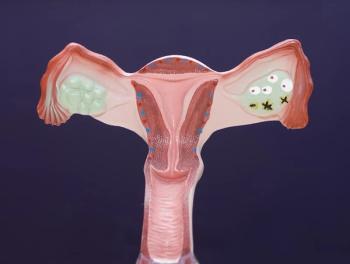
Miami Breast Cancer Conference® Abstracts Supplement
- 40th Annual Miami Breast Cancer Conference® - Abstracts
- Volume 37
- Issue suppl 4
- Pages: 40
29 Cost and Utility of Sentinel Lymph Node Biopsy in Patients Undergoing Breast Conservation Surgery for DCIS
Background
Current guidelines do not recommend sentinel lymph node biopsy (SLNB) for ductal carcinoma in situ (DCIS) in breast conservation surgery (BCS), but if a patient has a final surgical diagnosis of invasive cancer, another operation is necessary to stage the axilla. Despite the recommendation, practice patterns vary, as some surgeons choose to perform SLNB on patients undergoing BCS for DCIS. This study aimed to evaluate the surgical cost data between patients undergoing lumpectomy alone and with SLNB to determine the value of this practice.
Materials and Methods
A single-center retrospective study of 260 patients from 2015-2020 who underwent initial lumpectomy for DCIS with or without concurrent SLNB. Demographics, tumor characteristics, and financial data were obtained. Basic statistical analyses were done to compare costs.
Results
Of the 260 patients, 36 had simultaneous SLNB. Eleven of these patients were upstaged to invasive cancer but none of these 36 patients had a positive lymph node. Their final stages were: 3 T1miN0, 2 T1aN0, and 6 T1bN0. The average cost of BCS with SLNB per patient was $4311. Of the other 224 patients who did not have concurrent SLNB, 22 were upstaged to invasive cancer and only they underwent reoperation to stage the axilla. Of these 22 patients, 1 had a positive lymph node and 1 had isolated tumor cells; the others did not have metastatic cancer. The final stages were: 2 T1miN0, 11 T1aN0, 5 T1bN0, 3 T1cN0, 1 T1cN1. For this group, the average cost of the lumpectomy was $3681 and the average cost of the SLNB was $3075; the total cost was $6756. When comparing the cost for the groups, if SLNB was done only on patients who were upstaged and required it, there would be a total cost savings of $154,575. Regarding tumor characteristics of those upstaged to invasive cancer, they were commonly grade 3, comedo histology, and receptor status was ER+/PR+ in 26/33 patients. The upstage rate from DCIS to invasive cancer was 12.7%.
Conclusions
This study shows that there is a cost savings benefit when doing SLNB only on patients with invasive cancer. It also has a lower upstage rate than that reported in literature. These data suggest that SLNB should not be performed on everyone with DCIS. Certain tumor characteristics should be considered when deciding on SLNB during an initial lumpectomy. Further studies are needed to delineate patient populations that would benefit from combined surgery.
AFFILIATIONS:
Sarah Keshwani,1 Amanda Copeland,1 Andrea Madrigrano1
1Rush University Medical Center, Chicago, IL.
Articles in this issue
Newsletter
Stay up to date on recent advances in the multidisciplinary approach to cancer.




































